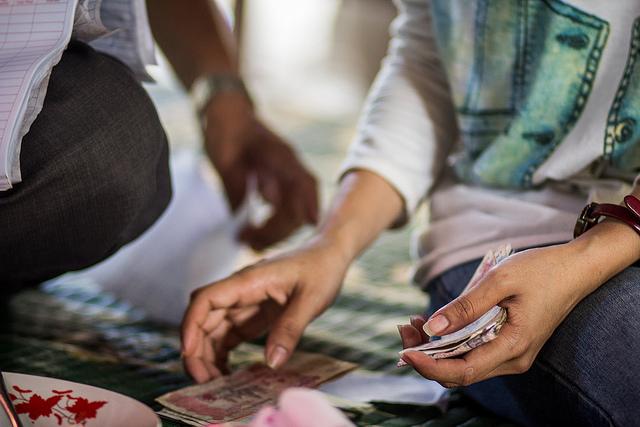The ASEAN Economic Community (AEC) has been the subject of much discussion and not much action. The problem of transnational crime in Southeast Asia is severe—it’s expanding in scale and becoming more organised. Fuelled by the forces of globalisation, organised crime groups have seized the opportunities that free trade flows offer. With the AEC to be established by the end of 2015, trade liberalisation sparks fears of an organised crime boom. This is a problem with serious implications for Australia due to the well-documented internationalisation of illicit markets.
Southeast Asian law enforcement officials fear that an increasingly integrated region could worsen the problem of transnational organised crime, undermining their efforts to tackle it. And there’s no shortage of criminal activities to be concerned about. Human trafficking, smuggling of migrants, illicit drug trafficking (particularly heroin and methamphetamine), wildlife trafficking and counterfeiting, are only small part of the illicit activities embedded in Southeast Asia.
At the heart of the problem are the large profits available to those who operate in illicit markets. Transnational organised crime is at least a US$870 billion year industry. Of that, the UNODC estimates Southeast Asia alone to generate close to US$100 billion per year. That’s more than Australia’s two-way trade partnership with ASEAN generated in 2014.
Those illicit revenues generate a wide range of harms which have no respect for borders and the sovereignty of states, and which threaten their prosperity and security. They favour short-term profit over human development, drive global economic disparities, ease the spread of corruption, fuel violence, facilitate the financing of terrorism and ultimately destabilise states.
Over the past few years, Southeast Asian countries have recognised the rise of new forms of crime. But if the scale of transnational organised crime is set to expand significantly in the region, this shouldn’t be a concern of ASEAN exclusively. The Australian Crime Commission’s (ACC) 2015 Organised Crime in Australia Report (PDF) suggested we are likely to see a further integration of organised crime into legitimate markets, both to expand criminal activities and to cover illicit operations. Yet organised crime already costs the Australian economy at least $15 billion each year— ASPI’s recent report on the impact of serious organised crime on Australia’s interests depicts the breadth of detriments of organised crime, both transnational and domestic, as it unfolds upon individuals, communities and legitimate businesses in Australia.
The realisation of the AEC is indeed an opportunity that Australia’s legitimate industries should seize. ASEAN nations already represent almost 15% of Australia’s total trade, and when considered as a whole, represents Australia’s second largest trading partner, behind China. But the old adage that ‘crime follows opportunity’ suggests that revenue-seeking criminals will also push hard to reap a profit under ASEAN’s new market conditions.
In October last year, UNODC Representative for Southeast Asia and the Pacific, Jeremy Douglas, said that without effective and integrated border management, and law enforcement and justice strategies, organised criminal activity will continue to grow in the region.
To prevent a dire situation from becoming worse, ASEAN leaders have consistently called for a comprehensive and coordinated approach in combating crime at the regional level. But translating political commitment into practical actions, particularly at the regional level, isn’t an easy task. Criminals operate with little regard for borders, while governments and law enforcement agencies remain confined by sovereignty and legal jurisdictions as well as long-standing distrust between certain states.
Yet, a regional problem requires a regional solution. And in this case, political will must translate into practical solutions at border checkpoints, which are key points in the system. Air and maritime ports in ASEAN countries and Australia are set to face greater movement of travellers and goods, increasing the burden of border control systems to facilitate trade while ensuring safety and security. ASEAN is taking steps towards adopting a common visa and developing an ASEAN Business Travel Card.
Indeed trade facilitation, in the World Customs Organisation (WCO) context, means the avoidance of unnecessary trade restrictiveness. This can be achieved by applying modern techniques and technologies, while improving the quality of controls in an internationally harmonised manner.
However, some parts of ASEAN are ill-equipped: only seven out of the ten member states have e-passport asystems in place, which hinders the ability of law enforcement agencies to share and match key proof of identity documents. Not all have fully adopted the WCO data model—a universal language for cross-border data exchange—and the ASEAN single window system (a regional initiative that expedites cargo clearance) is yet to integrate all member states to facilitate efficient import and export processing in the region.
Technology and globalisation have already made criminal activity more common, more lucrative, easier to commit and harder to detect. Enhanced, seamless and high-tech border control systems must become the norm if ASEAN is determined to be regarded as a single economic region. This would also help Australia maximise its leverage to tackle organised crime even before it reaches our shores.
High-tech harmonisation and efficient information-sharing systems will be vital to reduce the threat that criminal networks pose to the region. But if casting out the fear of a crime boom is the case, trust must be at the centre of joint law-enforcement efforts. ASEAN’s unified market will create a new setting for trade to expand while testing the ability to trust neighbours to prevent the expansion of regional organised crime.
